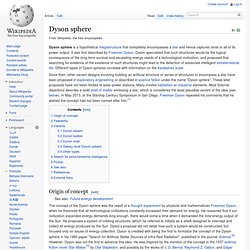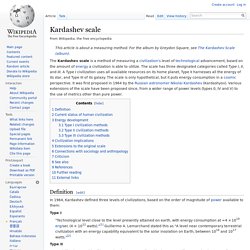

Orion's Arm. Orion's Arm, (also called the Orion's Arm Universe Project, OAUP, or simply OA) is a multi-authored online science fiction world-building project, first established in 2000[1] by M.

Alan Kazlev, Donna Malcolm Hirsekorn, Bernd Helfert and Anders Sandberg and further co-authored by many people since.[2] It was described by Cory Doctorow as "a pretty thoroughgoing post-Singularity thinggum with lots of opportunity for fun noodling".[3] Anyone can contribute articles, stories, artwork, or music to the website. A large mailing list exists,[4] in which members debate aspects of the world they are creating, discussing additions, modifications, issues arising, and work to be done. A computer game and a role-playing game are being developed by the community, within the OA milieu. Setting[edit] OA is a part of the transhuman space opera subgenre. Prominent theoretical technologies[edit] Technologies that feature prominently in the Orion's Arm setting include: Prominent theoretical artifacts[edit]
Yotta- Yotta is the largest unit prefix in the International System of Units (SI), denoting a factor of 1024 or 1000000000000000000000000.

It has the unit symbol Y. The prefix name is derived from the Greek οκτώ (októ), meaning eight, because it is equal to 10008. It was added to the SI in 1991.[1] Usage examples: Dyson sphere. Dyson sphere is a hypothetical megastructure that completely encompasses a star and hence captures most or all of its power output.

It was first described by Freeman Dyson. Dyson speculated that such structures would be the logical consequence of the long-term survival and escalating energy needs of a technological civilization, and proposed that searching for evidence of the existence of such structures might lead to the detection of advanced intelligent extraterrestrial life.
Different types of Dyson spheres correlate with information on the Kardashev scale. Since then, other variant designs involving building an artificial structure or series of structures to encompass a star have been proposed in exploratory engineering or described in science fiction under the name "Dyson sphere". These later proposals have not been limited to solar-power stations. Kardashev scale. The Kardashev scale is a method of measuring a civilization's level of technological advancement, based on the amount of energy a civilization is able to utilize.

The scale has three designated categories called Type I, II, and III. A Type I civilization uses all available resources on its home planet, Type II harnesses all the energy of its star, and Type III of its galaxy. The scale is only hypothetical, but it puts energy consumption in a cosmic perspective. It was first proposed in 1964 by the Russian astronomer Nikolai Kardashev (Kardashyov). Kardashev scale. Sociology. Continuous Creation. Telepathy. ESP. Parallel Worlds. Scientific Errors. Physics. Eschatology. Tesla, Nikola. Perception. Subliminal. Entropy. In its strict meaning, "entropy" is a thermodynamics term, first used by the German physicist Rudolf Clausius (1822-1888) in 1850 to describe the amount of heat that must be put into a closed system to bring it to a given state.

The Second Law of Thermodynamics – often stated in terms of work as "it is impossible to produce work by transferring heat from a cold body to a hot body in any self-sustaining process" – can alternatively be rendered: "Entropy always increases in any closed system not in equilibrium, and remains constant for a system that is in equilibrium. " To put it less technically: whenever there is a flow of energy some is always lost as low-level heat. Terraforming. Time Abyss. Transmutation. Time Out of Sequence. Transcendence. Ultrawave. Parallel Worlds. Theosophy. Matter Transmission. Timeslip. Teleportation. Dimensions. We perceive three spatial dimensions, but theoretical Mathematics is easily capable of dealing with many more.

Mathematics. The imaginations of pure mathematicians have provided sf writers with important motifs.

For example, the notions taken from geometry and topology of a fourth and other Dimensions (which see for a listing of relevant sf stories) have the essential qualities of strangeness and mystery, making them an enjoyable struggle for the untrained intuition to accept. A surprising number of sf writers have been mathematicians, or at least have trained in mathematics; among them have been Lewis Carroll, Arthur C Clarke, Paul Davies, A K Dewdney, Ralph Milne Farley, Martin Gardner, Norman Kagan, Johannes Kepler, Donald Kingsbury, Homer Nearing, Larry Niven, Esther Rochon, Rudy Rucker, Bertrand Russell, Ian Stewart, Boris Strugatski, John Taine, Vernor Vinge and David Zindell.
Upload. Evolution. There is, inevitably, an intimate connection between the development of evolutionary philosophy and the history of sf.

In a culture without an evolutionary philosophy most of the kinds of fiction we categorize as sf could not develop. Like the idea of progress, evolutionary philosophy flourished in late eighteenth-century France, and it was first significantly represented in literature by Restif de la Bretonne's evolutionary fantasy La découverte Australe par un homme volant ["The Southern-Hemisphere Discovery by a Flying Man"] (1781), an allegorical treatment of ideas partly derived from the Comte du Buffon (1707-1788). Absurdist SF. The word "absurdist" became fashionable as a literary term after its consistent use by the French novelist and essayist Albert Camus (1913-1960) to describe fictions set in worlds where we seem at the mercy of incomprehensible systems.

These systems may work as metaphors of the human mind – outward manifestations of what J G Ballard means when he uses the term Inner Space – or they may work as representations of a cruelly arbitrary external world, in which our expectations of rational coherence, whether from God or from human agencies, are doomed to frustration, as in the works of Franz Kafka. In this encyclopedia we cross-refer works of Absurdist sf to the blanket entry on Fabulation, but do not thereby wish to discount the usefulness of Absurdist sf as a separate concept, especially when we are thinking about some sf written between about 1950 and 1970. Interesting examples of absurdist sf film-making include The Bed-Sitting Room (1969) and Peter Greenaway's The Falls (1980).
[PN/JC] Metaphysics. One of the qualities of sf that sometimes baffles new readers is the relative infrequency, despite its label, with which it deals with the hard sciences; indeed, sf deals as often with metaphysics as with Physics.

This is not an accidental or a recent development; the exploration of metaphysical questions has been central to sf at least since the time of Mary Shelley's Frankenstein, or The Modern Prometheus (1818; rev 1831). This centrality was not thereafter abandoned: it recurs in the pioneering sf of Edgar Allan Poe, Nathaniel Hawthorne, Robert Louis Stevenson and pre-eminently H G Wells. The basic metaphysical question is the notorious Cliché, "What does it all mean? " Religion. Familiar Definitions of SF imply that there is nothing more alien to its concerns than religion. However, many of the roots of Proto SF are embedded in traditions of speculative fiction closely associated with the religious imagination, and contemporary sf recovered a strong interest in certain mystical and transcendental themes and images when it moved beyond the Taboos imposed by the Pulp magazines.
Modern sf frequently confronts age-old speculative issues associated with Metaphysics and theology – partly because science itself has abandoned them. Speculative fiction always tends to go beyond the merely empirical matters with which pragmatic scientists concern themselves; perhaps something called "science" fiction ought not to include metaphysical fiction, but the genre as constituted obviously does. Time Loop. Time Paradoxes. The fact that Time Travel into the past disrupts the pattern of causality, changing or cancelling matters of known fact, has not caused stories of this kind to be banished from the sf field; instead it has led to the growth of a subgenre of stories celebrating the peculiar aesthetics of such Paradoxes. The essential paradoxicality of time travel is often dramatized by asking: "What would happen if I went back in time and killed my own grandfather?
" – a question to which sf writers have provided many different answers. A time-paradox story usually leads either to a singularly appropriate reductio ad absurdum or to a cunning literary move which appears to resolve the paradox by removing or avoiding the seemingly inevitable contradiction. F Anstey's pioneering fantasy The Time Bargain (1891; vt Tourmalin's Time Cheques) provided a prototype for the first kind of story by dismissing its ultimate, unresolvably complex tangle as no more than a dream. See also: Alternate Worlds. An alternate world – some writers and commentators prefer the designation "alternative world" on grammatical grounds – is an account of Earth as it might have become in consequence of some hypothetical alteration in history. Many sf stories use Parallel Worlds as a frame in which multiple alternate worlds can coexist, sometimes interacting with one another.
Previous editions of this encyclopedia discussed Alternate History under the Alternate Worlds heading; the general trend of usage has since established Alternate History as the preferred Terminology. Murray Leinster introduced the idea of alternate worlds to Genre SF in "Sidewise in Time" (June 1934 Astounding), and Stanley G Weinbaum used it in a light comedy, "The Worlds of If" (August 1935 Wonder Stories); but the first serious attempt to construct an alternative history in sf was L Sprague de Camp's Lest Darkness Fall (December 1939 Unknown; exp 1941; rev 1949).
[BS/DRL] See also: Relativity. Overall name for the theories of space-time Physics formulated by Albert Einstein (1869-1955): special relativity, proposed in 1905, and general relativity, proposed in 1916. Gravity. Alternate Cosmos. Utopias. Alternate History. Cosmology. Thought Experiment. Multiverse. Psi Powers.